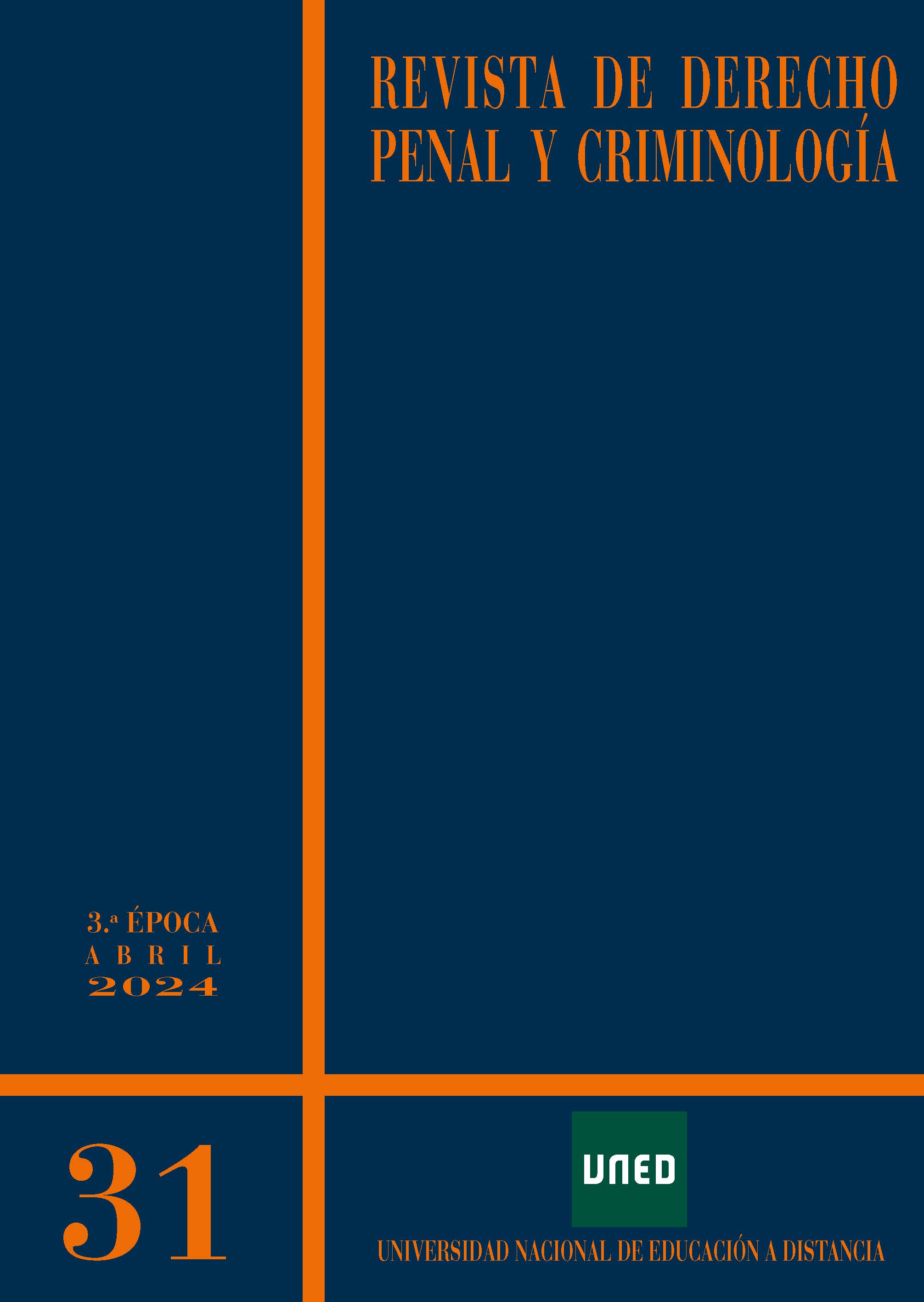The Caregiver’s Role as a Criminogenic Factor: Female Inmates within the Spanish Prison System
DOI:
https://doi.org/10.5944/rdpc.ENERO.2024.37542Keywords:
Women in prison, inmates, role of caregiver, criminogenic factorsAbstract
Within the framework of research on women in prison, this work focuses, from a quantitative and qualitative approach, on exploring the role of caregiver assigned to women inmates and the eventual relationship between this and their involvement in crime.
Contrary to the classic theories of crime, which consider family ties as a criminal resistant factor —that is, as a factor that reduces the chances of getting involved in crime— recent research indicates that family ties associated with the role of caregiver assigned to women, may, in certain contexts, constitute factors that promote their involvement in criminality.
After surveying and interviewing 302 and 12 women, respectively, in 6 prisons in Andalusia, it is revealed that some decisions related to this care work attributed to women (such as the eventual abandonment of school studies, early marriage or early maternity), lead to placing her in a situation of vulnerability that favors her involvement in crime.
After exposing the theoretical framework, this article sets out the objectives and the methodology used in the «Women in prison» research, to then present the results obtained in relation to the role of caregiver of the inmate woman. The work concludes by exposing the main ideas that emerge from the analysis of results, as well as a series of recommendations that could benefit the female prison population.
Downloads
Downloads
Published
How to Cite
Issue
Section
License
Copyright (c) 2024 Revista de Derecho Penal y Criminología

This work is licensed under a Creative Commons Attribution-NonCommercial-NoDerivatives 4.0 International License.
La Revista de Derecho Penal y Criminología de la UNED carece de ánimo de lucro o comercial y está financiada por el Departamento de Derecho penal y Criminología de la UNED.
Todos los artículos se publican en abierto .
Los autores ceden gratuitamente a la Revista los derechos inherentes a la propiedad intelectual imprescindibles para realizar su labor de edición, publicación y difusión.
Los autores están autorizados a depositar en repositorios institucionales o temáticos de acceso abierto la versión publicada de sus artículos (separata en pdf) o el enlace a su artículo en la página de la revista .
Las obras están bajo una Licencia Creative Commons Atribución-NoComercial-SinDerivar 4.0 Internacional.
Se pueden copiar, usar, difundir, transmitir y exponer públicamente, siempre que:
- Se cite la autoría y la fuente original de su publicación (revista, editorial y URL de la obra).
- No se usen para fines comerciales.
- Si se transforma o construye sobre el material, no se puede distribuir el material modificado.







